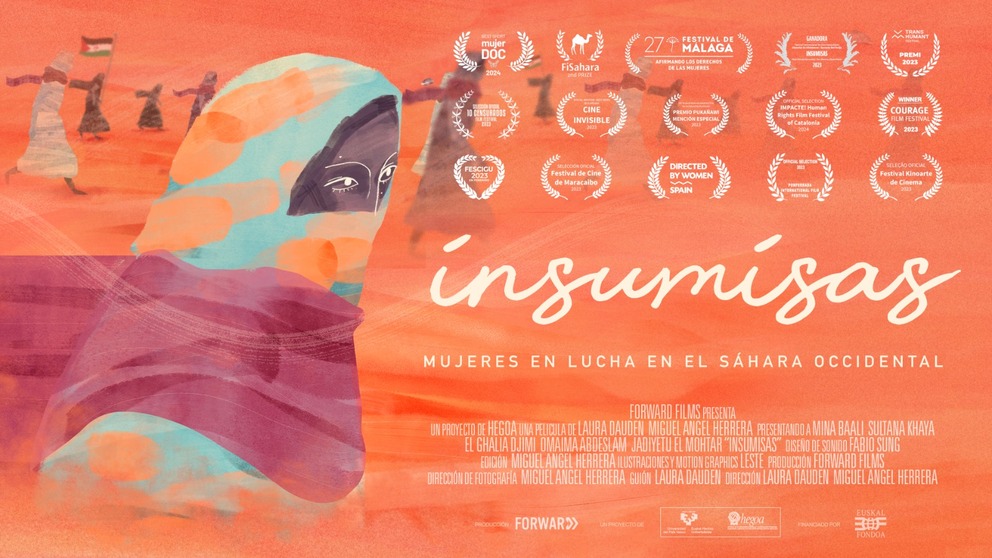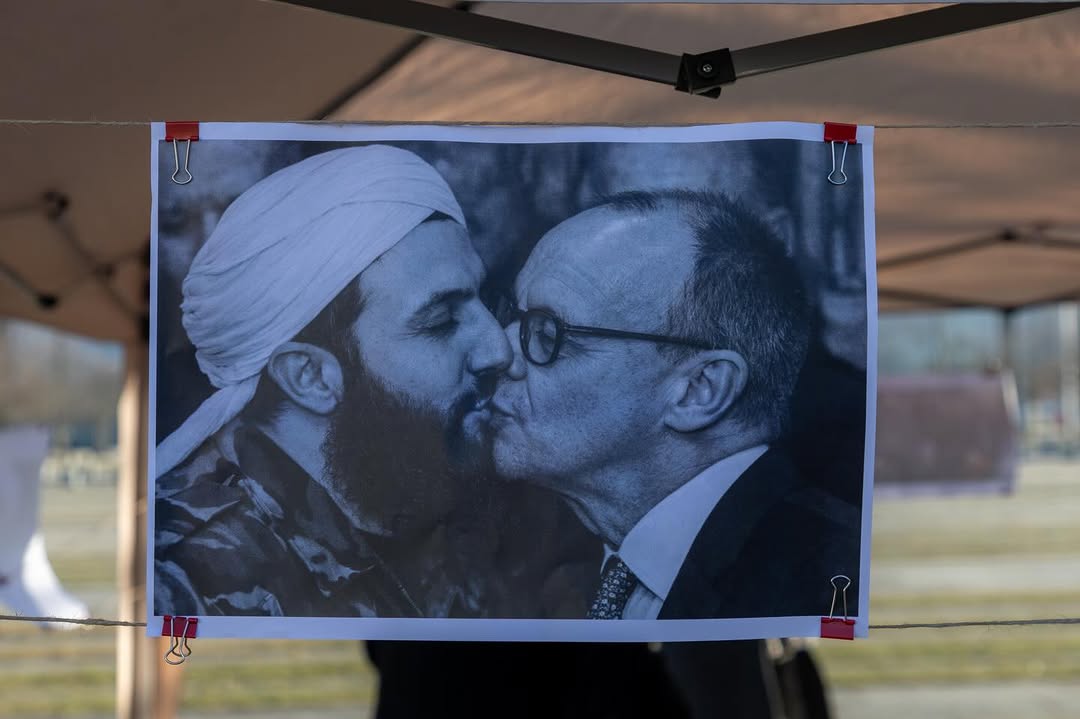From the rooftops of Western Sahara to the corridors of Geneva’s institutions, Sahrawi resistance is steadfastly led by women wrapped in their Melhfa.
Sahrawi women have always been at the forefront of their people’s unyielding struggle for self-determination and independence, opposing Moroccan colonialism since 1975. After Spain’s illegal handover of Western Sahara to Morocco and Mauritania, Sahrawi women shattered societal and racial barriers, organizing their lives, coordinating resistance in occupied territories, and bolstering it in exile.
The short documentary Insumisas, co-directed by Brazilian Laura Daudén and Colombian Miguel Angel Herrera and produced by the Hegoa Institute (UPV/EHU) and Forward Films, is a compelling 26-minute homage to the strength, courage, and resilience of the Sahrawi women who fight every day for their rights and the liberation of their homeland.
Using a masterful mix of personal interviews and striking animation, Insumisas unveils the harrowing experiences of women enduring Morocco’s brutal occupation. These women recount the horrific abuses they have suffered, giving a human face to statistics and reports often overlooked by international media. The documentary weaves these personal narratives with findings from the report Bring Everything to Light: Human Rights Violations Against Women in Occupied Western Sahara (1975-2021). This report, the product of collaboration between Hegoa and dedicated Sahrawi activists, exposes the harsh reality Sahrawi people—and particularly women—have faced since 1975.
The report’s findings are staggering. Based on interviews with 81 women across all age groups, it documents severe human rights abuses, including violations of the right to life, torture, cruel and degrading treatment, sexual violence, and forced displacement. Special focus is given to economic, social, and cultural rights. The numbers are alarming: over 90% of Sahrawi women interviewed report torture and humiliating treatment, while 68%—despite the stigma worldwide around sexual violence—admit to having suffered sexual assault. Yet, while these women’s voices are finally heard, the tragic truth remains: 100% of these crimes go unpunished.
The film features remarkable figures like El Ghalia Djimi, Mina Baali, and Soultana Khaya, who offer firsthand accounts of their relentless fight. They demand visibility and recognition for the victims of occupation and torture, including their own experiences. In their narratives, they analyze the complex socio-political landscape of both past and present, reflecting on their roles as women within this context. They identify as defenders of universal human rights, urging the international community to respond to the injustices suffered by their people.
The film also follows the efforts of diplomats Jadiyetu El Mohtar and Omeima Mahmud, who work in Euskadi and Geneva, using this report to call on European nations to uphold their own values of international law and human rights. These women are leading a movement for justice and freedom for the Sahrawi people.
Another key theme in the film is the recent resumption of war in 2020 and Spain’s disappointing shift on Western Sahara. In 2022, Spain’s socialist government caved to pressure and blackmail from Morocco, which uses migrant flows to Spain as a bargaining chip. In May 2021, for instance, Morocco allowed 12,000 migrants into Ceuta in two days. Spain, abandoning its supposed neutrality, accepted Morocco’s proposal for Saharan autonomy as “the most serious, realistic, and credible basis for a resolution.” Since then, the Spanish government—while professing commitment to human rights—has continued to comply with Morocco’s directives, denying entry and deporting Sahrawi people and activists to Morocco. This betrayal of the Sahrawi people is also a retreat from the human rights principles Spain claims to uphold.
Yet, the Sahrawi women’s struggle remains strong and unrelenting. After decades of effort and numerous victories, in October 2024, the European Court of Justice (ECJ) nullified the 2019 EU-Morocco trade agreements covering fisheries and agricultural products. The ECJ ruled that the people of Western Sahara had not consented to these agreements, which violate the principles of self-determination and the limited effect of treaties. This is a significant victory for the Sahrawi people and proof that international pressure can make a difference.
Insumisas reflects the unyielding struggle of Sahrawi women, who have achieved this historic victory. Despite ongoing humiliation, torture, and sexual violence, they continue their daily fight for a free and independent Sahara. Their voices are not merely testimonies of suffering; they are symbols of resistance and an unending quest for justice and freedom. The film calls on all those who value human rights and justice to hear these women’s voices and support them in their struggle.
All in all, Insumisas is a powerful, moving, and essential work that brings attention to the ongoing struggle of the Sahrawi people. It urges us to reflect on the colonial backdrop and systemic injustices facing many nations today and inspires us to act in solidarity.
This entire month Media Space k18 (Kreutzierstr. 18) and La Jaima de Tiris are presenting different documentaries every Tuesday to bring to light the plight of the Saharawi people, and having talks afterwards with Saharawi activists. Everyone is welcome to join. More info at La Jaima de Tiris Instagram.




